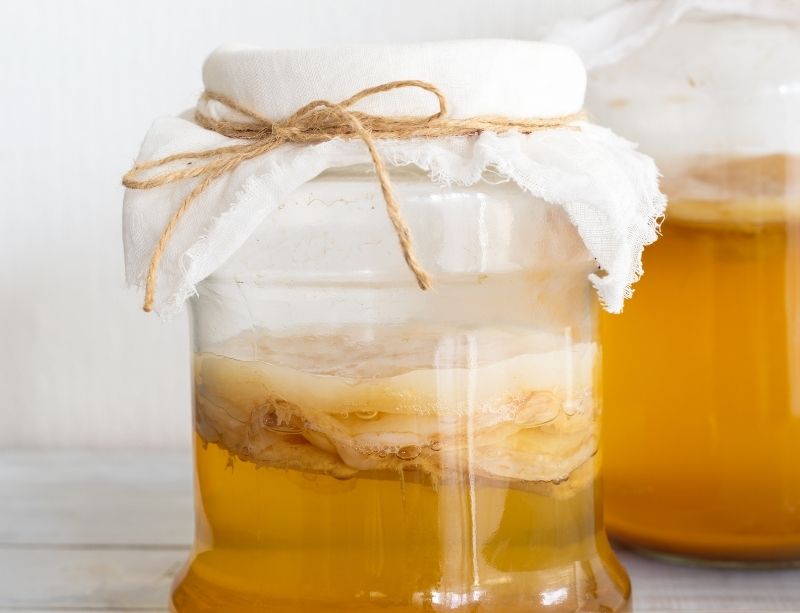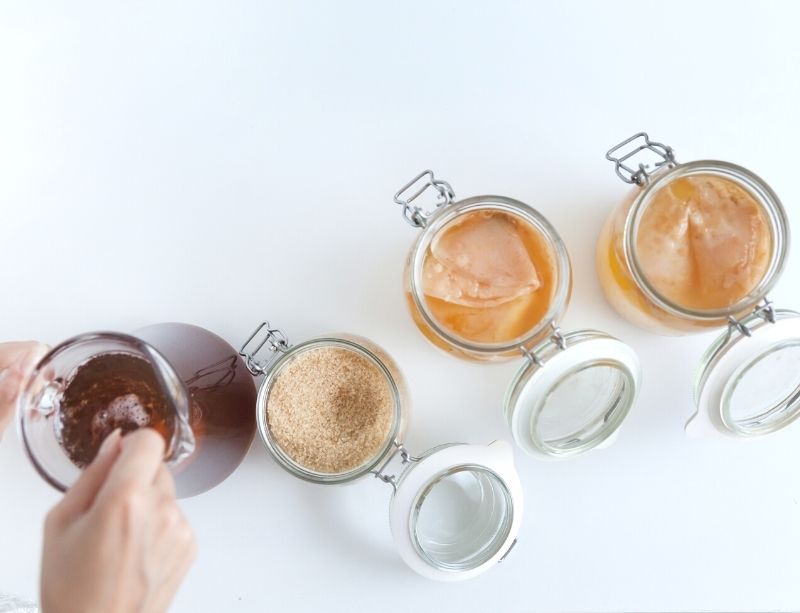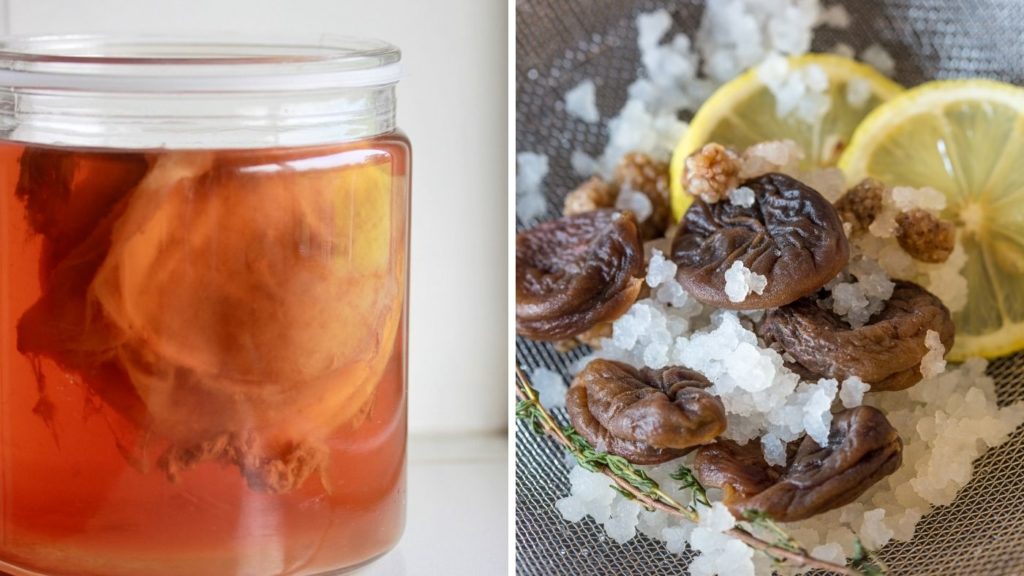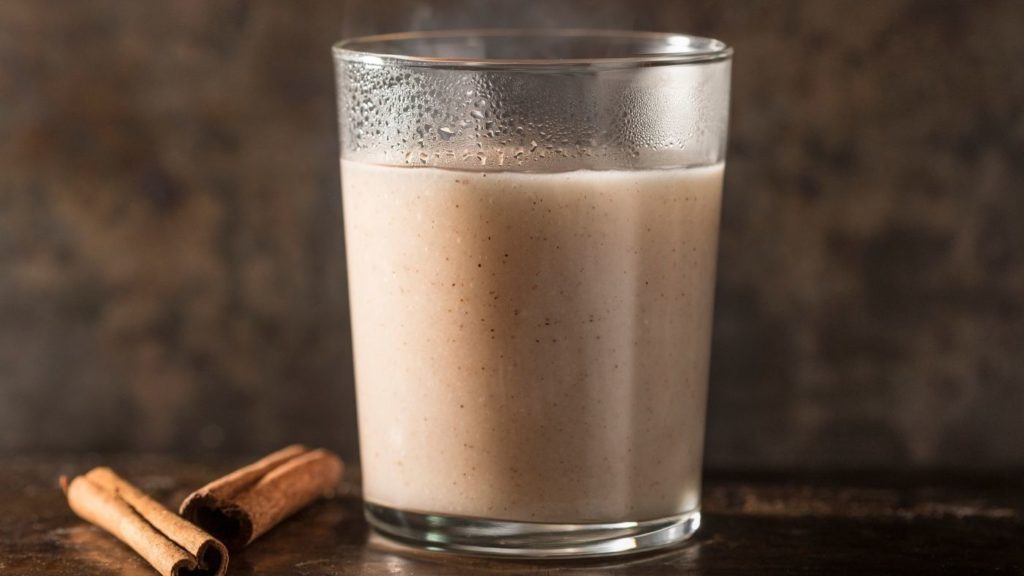Are there any dangers in making kombucha at home? Can I be poisoned by my kombucha? How do I know if my kombucha is safe?
These are the questions that arise for those who want to start making homemade kombucha for the first time.
It’s normal to ask these questions when it comes to our food! After all, how do you know if the microorganisms in your jar are the right ones?
Luckily, homemade kombucha is an easy and safe drink to make.
This article covers the basics of kombucha biology, assesses the possible risks of homemade kombucha, and shows how to prepare it safely.
Skip to the section:

Why Is Kombucha Safe?
The most important ingredient in the preparation of kombucha is the kombucha scoby. Scoby is an ecosystem of microorganisms (bacteria and yeast) that live in symbiosis.
When these good microorganisms are added to sweet tea, they reproduce to grow the colony. Sweet tea becomes a jungle of good microorganisms, leaving no room for pathogenic bacteria.
By simply occupying the territory, kombucha microorganisms safely defend the kombucha from contaminants (ref).
Their main weapon is the production of large amounts of organic acids. The tea then becomes too acidic for the development of pathogens such as E. coli and salmonella (ref).
It is thus because of its abundance of good microorganisms and its acidity that kombucha can perpetuate itself from recipe to recipe, while remaining very safe to drink.
Is There Any Dangers in Making Kombucha?
Fermenting kombucha in a normal and safe environment does not pose any health risks (ref).
The Canadian Food Inspection Association has declared kombucha to be safe and that it meets their inspection criteria (ref).
In fact, there are no serious cases of poisoning in scientific literature directly related to the consumption of homemade kombucha (ref). When properly prepared, kombucha is safe.
The only incidents reported were related to completely unsanitary fermentation environments or the use of antique jars contaminated with lead. Both incidents are easily avoided!
Note: Like any food, kombucha may not be suitable for everyone. Among other things, it may contain a small amount of alcohol, which can be dangerous for children and pregnant women. Do you have any questions? Consult a health professional!

Best Practices for Making Homemade Kombucha
As with any cooking technique, there are some basic principles to ensure the health and safety of homemade kombucha.
1. Have a Good Kombucha Scoby
When making your kombucha, make sure you have a healthy and active kombucha scoby. It is the vitality of the kombucha scoby that ensures successful fermentation.
For more information, see Where to Find a Kombucha Scoby.
2. Use Appropriate Equipment
To avoid contaminating your kombucha, make sure you know the origin of your containers. Antique stoneware jars may look nice, but they can contain lead.
For more information, see What Equipment to Choose for Making Kombucha.
3. Wash Your Tools and Equipment Thoroughly
Basic hygiene and sanitation are essential to the success of your kombucha. Just wash thoroughly your equipment in hot, soapy water before using it.
Make sure you rinse your tools properly to avoid soap residue.
4. Follow the Recipe
The proportions of water, sugar, tea, and scoby in the kombucha recipe are important.
The kombucha scoby should always represent at least 10% of the total volume of the recipe. This amount is important to ensure that the liquid is acidic enough, from the start of the fermentation process.
Sugar also plays an essential role: it feeds the microorganisms. Without sugar, there is no fermentation!
In summary, to make kombucha safely, simply follow the basic principles of the recipe.
Questions about your homemade kombucha? See our Frequently Asked Questions: Is my kombucha scoby ok?

